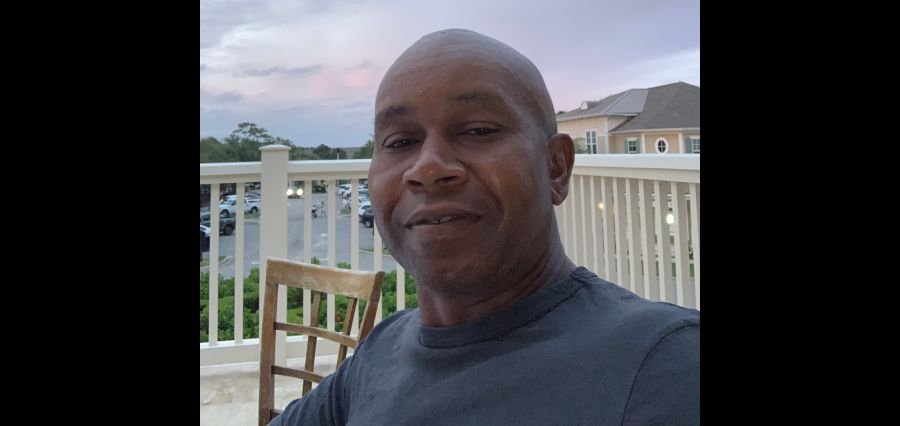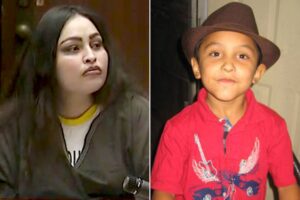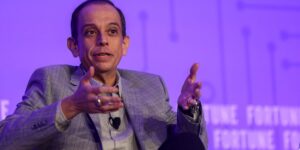TALLAHASSEE, Fla. — Long before became a nationally respected surgical oncologist and academic leader, he was a young Army medic crawling into a ravine to rescue a fellow soldier pinned inside a Humvee. That act of bravery earned him the Army Achievement Medal and, more importantly, instilled in him a profound sense of purpose.
Ever since then, he’s been passionate about running toward people in distress and figuring out how to give them back their lives.
“I learned that day that service isn’t just a job description,” Dr. Douglas said. “It’s a way of showing people their lives are worth fighting for.”
Today, , M.D., FACS, FSSO, carries the same sense of urgency and purpose he once brought to the battlefield into the operating rooms and classrooms of Florida State University’s College of Medicine.
As Professor of Clinical Sciences and Program Director of the General Surgery Residency, he draws on more than two decades of experience in surgical oncology, patient care, and academic mentorship.
Renowned for his pursuit of excellence, is not only a skilled clinician but a visionary educator and researcher. His groundbreaking work in cancer biology, health disparities, and surgical education continues to shape healthcare policy, enrich academic dialogue, and redefine best practices in medicine.
“There are two achievements in my career that I’m most proud of,” he shared in a recent interview. “The first is obtaining my Expert Field Medical Badge when I was enlisted in the Army. That achievement provided me with confidence and self-belief. The second is establishing the general surgery residency program for Florida State University College of Medicine.”
From Gadsden County to Nationally Recognized Oncologist
Douglas grew up in Quincy, a small town in Florida’s Gadsden County. He credits a family doctor, the late Samuel Hunter, with nudging him toward medicine by letting a curious teenager shadow office visits. “Dr. Hunter gave me permission to imagine something bigger than the circumstances around me,” Douglas explained.
That imagination carried him through a biology degree at Florida A&M University, an M.D. from the University of Florida and three fellowships at Roswell Park Cancer Institute in Buffalo, N.Y., one of the world’s oldest cancer centers. There he dived into the molecular quirks that make head‑and‑neck tumors so stubborn.
“The science behind cancer grabbed me because it was personal,” he said, recalling the first patient he watched succumb to the disease as a medical student. “I saw how a diagnosis ravaged not just the person but their entire family. I wanted answers.”
Dr. Wade Douglas Is A Teacher At Heart
Dr. Douglas spent nearly a decade at Marshall University’s Joan C. Edwards School of Medicine in West Virginia, rising from assistant to associate professor and, eventually, residency program director. He moved home to Florida in 2014 when FSU recruited him to rebuild its fledgling surgery residency in Tallahassee.
In the 10 years since, the program’s American Board of Surgery pass rate has climbed to 100 percent. Residents log above‑average operative volumes, and a required “compassionate‑care rotation” pairs every trainee with palliative‑care nurses.
“Mentorship is at the heart of what I do,” Dr. Douglas emphasized. “I strive to develop not just skilled surgeons, but compassionate caregivers who understand the diverse communities they serve.”
Trailblazing in Research and Education
Dr. Douglas has authored more than three dozen peer-reviewed publications in the fields of surgical oncology, tumor resistance, and medical education. His work is widely cited, notably including the co-authored study, “Leveraging Real-World Data to Predict Cancer Cachexia Stage, Quality of Life, and Survival” (2024), and a 2023 study on diversity in surgical education published in the Journal of Surgical Education.
“Research is how we drive change,” Douglas said. “Whether it’s understanding how inflammation affects cancer treatment or how to build more inclusive medical institutions, the goal is the same: better outcomes for everyone.”
In his 2024 study on pancreatic cancer outcomes, Dr. Douglas emphasized the need to incorporate real-world patient data to better understand disease progression, especially among racially and ethnically diverse groups. His work highlights the critical role of personalized treatment planning and highlights the potential of data-driven models to close gaps in quality of life and survival.
His 2023 study on surgical education made a compelling case for increased representation and equity in training programs, identifying trends across a 12-year span and calling for measurable, actionable change. These themes also surface in the Florida Pancreas Collaborative—a next-generation biobank he helped launch in 2021 to advance research, improve survival, and reduce disparities for patients with pancreatic cancer.
He has become a key figure in efforts to address health disparities, particularly in cancer care. He has contributed to large-scale projects like the Florida Pancreas Collaborative Biobank, which focuses on improving pancreatic cancer outcomes for diverse populations.
Last May the American Board of Surgery elected Douglas to its governing council, a six‑year post that will shape core‑curriculum exams and continuing‑certification standards for 31,000 U.S. surgeons.
He hopes to leverage the position to widen the pipeline of under‑represented students.
“Talent is universal; opportunity isn’t,” he said. “If a kid from Gadsden County can chair the ABS curriculum committee, imagine what other doors we can open.”
A Mission Beyond the Operating Room
While his resume is impressive, it is Dr. Douglas’s humanity that sets him apart. In every student he mentors and every policy he helps shape, Douglas is driven by a deep desire to give back. As a Black man in a field where representation is still lacking, he makes it a personal mission to ensure that young people from all backgrounds can see themselves in medicine.
“Diversity is not a box to check,” he said. “It’s the foundation of excellence. When we bring in voices from all walks of life, we strengthen our ability to heal.”
Dr. Douglas remains a mentor to dozens of residents and fellows, many of whom credit him with helping them navigate the emotional and intellectual demands of surgical training. His approach blends discipline with grace, a combination perhaps honed during his time in the military.
When asked how he defines success, Dr. Douglas doesn’t hesitate: “Success is applying everything you know to solve a problem. It’s not about recognition. It’s about making a difference.”
That difference shows up not only in the operating room but in the confidence and skill of his students, in the policies influenced by his research, and in the patients whose lives he has changed.
He advises his younger self—and today’s young professionals—to spend more time with family and embrace the fullness of life outside of work.
“My advice is to spend more time with your extended family,” Dr. Douglas said. “Go to family reunions and cousins’ weddings and so forth.”
Balancing Leadership and Life
In a high-stakes, high-burnout profession, Dr. Douglas emphasizes the importance of mental and physical well-being. “I tell my students: protect your sleep. That’s where healing and clarity come from,” he said. His emphasis on sleep hygiene is just one example of how he applies holistic principles to surgical training.
He draws inspiration from leaders like Steve Jobs, admiring their ability to persevere and innovate under pressure.
At a time when medicine is facing unprecedented challenges—from systemic inequities to rapid technological change—Dr. Wade G. Douglas stands as a reminder of what it looks like to lead with integrity.
He has lived many lives: Army medic, surgical oncologist, educator, researcher, mentor. Each role has deepened his belief that the highest form of leadership is service.
“If there’s one thing I want to be remembered for,” he said, “it’s that I cared deeply and gave my best.”
With his election to the ABS Council and a generation of young surgeons looking up to him, Dr. Douglas is not just influencing medicine—he’s changing it.
Credit: insightssuccess.com











